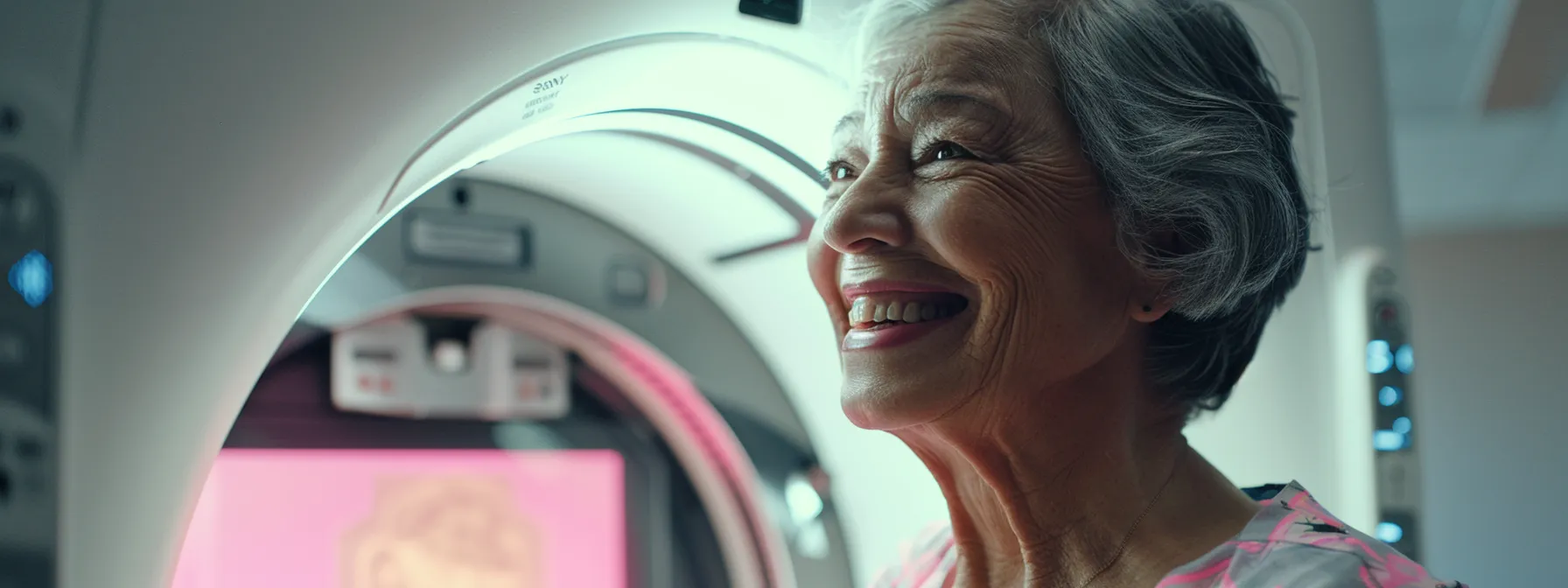Did you know that Medicare offers preventive services to detect chronic conditions early? Many seniors are unaware of these valuable benefits. This article will explore how Medicare’s screenings and wellness services can help you identify health issues before they become serious. We’ll cover key preventive services, explain how to maximize your Medicare benefits and show how early detection can improve health outcomes. By understanding these tools, you can take control of your health and potentially avoid costly treatments.
Key Takeaways
- Medicare offers preventive screenings to detect chronic conditions early, improving the quality of life for seniors.
- Medicare Advantage plans provide comprehensive coverage for chronic disease management and preventive services.
- Annual Wellness Visits offer personalized care planning and health assessments for Medicare beneficiaries.
- Financial assistance programs help seniors overcome barriers to accessing early detection and management services.
- Early detection through Medicare has improved health outcomes for diabetes and hypertension.
Understanding the Importance of Early Detection in Chronic Conditions

Early detection of chronic conditions is crucial for seniors’ health. Medicare offers preventive screenings to identify diseases affecting the prostate, kidneys, and heart rate. Timely diagnosis can improve beneficiaries’ quality of life. Common chronic conditions among Medicare recipients include heart disease and kidney problems. Understanding these issues helps seniors maximize their Medicare benefits for better health management.
The Impact of Chronic Diseases on Seniors
Chronic diseases significantly impact seniors’ health and quality of life. Conditions like hypertension and diabetes affect a large number of older adults, with the American Diabetes Association reporting a high incidence among Medicare patients. These diseases often lead to complications and increased healthcare needs, making early detection crucial.
Identification of chronic conditions through Medicare screenings can reduce the risk of severe health issues. Patients who receive timely diagnoses and treatment often experience better outcomes and improved management of their conditions. This proactive approach helps seniors maintain independence and reduces the overall burden on the healthcare system.
Role of Early Detection in Improving Quality of Life
Early detection through Medicare screenings is vital in improving seniors’ quality of life. Medical imaging techniques and blood tests, such as glycated hemoglobin measurements, help identify chronic conditions like diabetic nephropathy in their early stages. This allows for timely intervention and better management of health issues.
The health system benefits from early detection by reducing the burden of advanced chronic diseases. Sensors and other diagnostic tools enable healthcare providers to monitor patient’s conditions closely, leading to more personalized care plans. Early detection and management of chronic conditions can result in:
- Reduced hospital admissions
- Lower healthcare costs
- Improved patient outcomes
- Enhanced overall well-being for seniors
Common Chronic Conditions Among Medicare Beneficiaries
Medicare beneficiaries commonly face chronic conditions such as kidney disease, heart disease, and diabetes. The Centers for Disease Control and Prevention reports that these conditions significantly impact seniors’ health and quality of life. Early detection through Medicare screenings can lead to better management and improved outcomes for these prevalent health issues.
Research published on PubMed highlights the importance of adherence to treatment plans for chronic conditions. Regular check-ups and preventive care can help identify changes at the cellular level, allowing for timely interventions. Medicare’s focus on early detection supports beneficiaries in maintaining their health and reducing the progression of chronic diseases.
Medicare Coverage for Preventive Services and Screenings

Medicare Part B offers comprehensive preventive services and early screenings to detect chronic conditions. This coverage includes tests and examinations based on medical history and individual risk factors. Understanding eligibility criteria and how to access these services enhances accessibility for beneficiaries. From HIV screening to routine health surveillance, Medicare provides essential tools for maintaining senior health.
Overview of Preventive Services Covered by Medicare Part B
Medicare Part B covers many preventive services, including primary care visits and specialized screenings. These services aim to detect chronic conditions early, utilizing advanced technologies like wearable devices and machine learning algorithms to enhance diagnostic accuracy. Beneficiaries can access various tests, such as fecal occult blood screening for colorectal cancer and neurological assessments for cognitive disorders.
The coverage extends to routine health check-ups and specific disease screenings based on individual risk factors. Medicare Part B emphasizes the importance of regular preventive care, offering services like cardiovascular screenings, diabetes tests, and cancer screenings. This comprehensive approach helps seniors maintain their health and catch potential issues early, leading to better management of chronic conditions:
Eligibility Criteria for Medicare Preventive Services
Medicare beneficiaries are eligible for various preventive services based on age, medical history, and risk factors. These services include screenings for chronic kidney disease, diabetes, and certain cancers. Eligibility criteria may vary depending on the specific test, such as the frequency of pap tests for cervical cancer screening.
When provided by qualified healthcare professionals, individuals with Medicare Part B can access preventive services without copayments or deductibles. Eligible beneficiaries may receive screenings to detect early signs and symptoms of chronic conditions, potentially reducing the need for surgery or advanced treatments. Medicare coverage for these services aims to promote early detection and management of health issues:
How to Access Covered Screenings and Tests
Medicare beneficiaries can access covered screenings and tests by consulting their primary care physician. These healthcare providers assess patients’ risk factors, including obesity and family history of oncology issues, to recommend appropriate preventive services. Physicians use analytics to determine which screenings benefit patients’ quality of life.
To utilize Medicare coverage for preventive services, beneficiaries should schedule regular check-ups with their doctors. Healthcare professionals can order necessary tests and screenings during these visits based on individual health profiles. This proactive approach helps detect chronic conditions early, reducing the risk of complications and injury associated with advanced diseases.
Maximizing Medicare Benefits for Chronic Disease Management

Medicare beneficiaries can maximize their benefits for chronic disease management through various strategies. Medicare Advantage plans offer comprehensive coverage, including advanced technologies for early detection. Understanding Medicare’s Chronic Care Management Services helps patients with conditions like chronic lymphocytic leukemia receive better care. Tips for reducing out-of-pocket costs can make preventive screenings, such as cervical cancer tests, more accessible.
Utilizing Medicare Advantage Plans for Comprehensive Coverage
Medicare Advantage plans offer comprehensive coverage for chronic disease management, including advanced therapies to support the immune system. These plans often provide access to specialized medical education programs, helping beneficiaries better understand and manage their conditions. Many plans offer enhanced emergency department services, ensuring prompt care during health crises.
Research published in JAMA highlights the effectiveness of Medicare Advantage plans in improving chronic disease outcomes. These plans typically cover various preventive services and screenings, enabling early detection and management of chronic conditions. Beneficiaries can maximize their Medicare benefits by choosing plans that align with their specific health needs:
- Access to specialized care networks
- Coverage for innovative therapies
- Reduced out-of-pocket costs for preventive services
- Coordinated care management programs
Understanding Medicare’s Chronic Care Management Services
Medicare’s Chronic Care Management (CCM) services aim to improve health equity and public health outcomes for beneficiaries with multiple chronic conditions. These services include regular physical examinations and coordinated care plans, utilizing artificial intelligence to enhance patient monitoring and treatment effectiveness. CCM services help patients manage complex health issues more effectively, reducing hospital admissions and improving overall quality of life.
Clinical trials have shown that CCM services can significantly benefit patients with chronic conditions. These services often include remote monitoring technologies, allowing healthcare providers to track patients’ health status and intervene early when issues arise. Medicare beneficiaries can access CCM services through their primary care providers, ensuring comprehensive and coordinated care for their chronic conditions:
Tips for Reducing Out-of-Pocket Costs
Medicare beneficiaries in the United States can reduce out-of-pocket costs for chronic disease management by utilizing in-network providers and taking advantage of free preventive services. Patients with leukemia or kidney disease can consult their physicians about cost-effective treatment options and explore available financial assistance programs. Beneficiaries can make more cost-effective healthcare decisions by staying informed about their coverage and seeking guidance from specialists in nephrology and other relevant fields.
Another effective strategy for reducing expenses is to compare Medicare Advantage plans annually and choose one that best fits the beneficiary’s health needs and budget. Patients can also ask their physicians about generic medication options or lower-cost alternatives for managing chronic conditions. By actively participating in their care and staying informed about Medicare benefits, beneficiaries can significantly lower out-of-pocket costs while maintaining quality healthcare for conditions such as leukemia and kidney disease.
Navigating Medicare’s Wellness Programs

Medicare’s Wellness Programs offer comprehensive health management for beneficiaries. The Annual Wellness Visit provides personalized care planning, while Prevention Plan Services focus on early detection of conditions like breast cancer through mammography. These programs coordinate care across specialties, including emergency medicine, to address potential disabilities. Regular screenings, such as colonoscopies, help prevent conflicts of interest in healthcare delivery and ensure timely interventions.
Benefits of the Annual Wellness Visit
The Annual Wellness Visit offers Medicare beneficiaries a comprehensive health assessment, including blood tests recommended by the United States Preventive Services Task Force. This visit enables healthcare providers to monitor chronic conditions and develop personalized preventive healthcare plans, addressing issues such as prostate cancer screening and other age-related health concerns.
During the Annual Wellness Visit, patients receive guidance on lifestyle modifications and preventive measures tailored to their health needs. This proactive approach to healthcare helps identify potential health risks early, allowing for timely interventions and improved management of chronic conditions through regular monitoring and follow-up care.
Personalized Prevention Plan Services
Medicare’s Personalized Prevention Plan Services offer tailored health screenings and interventions based on individual risk factors. These services include comprehensive assessments of hemoglobin and glucose levels and the use of advanced medical devices to detect early signs of chronic conditions. Insurance coverage for these preventive measures ensures beneficiaries receive timely and cost-effective care.
The prevention plan incorporates electrocardiography and other diagnostic tools to assess cardiovascular health and identify potential risks. Healthcare providers use these personalized plans to develop targeted strategies for managing chronic conditions and improving overall health outcomes for Medicare beneficiaries. Regular monitoring and adjustments to the prevention plan help ensure ongoing effectiveness in early detection and management of health issues.
Coordinating Care With Healthcare Providers
Medicare beneficiaries can coordinate care with healthcare providers to effectively manage chronic conditions like chronic obstructive pulmonary disease. This coordination involves regular communication between primary care physicians, specialists, and emergency care providers to ensure comprehensive treatment plans. Medicare coverage supports this coordinated approach, allowing for seamless transitions between different healthcare settings and reducing the risk of drug interactions or conflicting treatments.
Effective care coordination helps Medicare patients navigate complex health issues,mainlyy when dealing with multiple chronic conditions. Healthcare providers can use Medicare’s wellness programs to develop integrated care strategies that address routine and emergency healthcare needs. This approach improves patient outcomes by ensuring timely access to necessary treatments and medications while also reducing the likelihood of hospital readmissions due to chronic condition complications.
Overcoming Barriers to Early Detection and Management

Overcoming barriers to early detection and management of chronic conditions is crucial for Medicare beneficiaries. This section explores financial assistance programs, strategies to enhance health literacy among seniors and solutions for transportation and accessibility issues. By addressing these challenges, seniors can better utilize Medicare services for early detection of conditions like stroke, improve their understanding of healthy diets, and access necessary pathology and psychiatry services.
Addressing Financial Concerns With Medicare Assistance Programs
Medicare assistance programs help beneficiaries overcome financial barriers to early detection and management of chronic conditions. These programs support data collection efforts, enabling healthcare providers to assess disease burden and tailor interventions for conditions like type 2 diabetes. By reducing out-of-pocket costs for cancer screenings and other preventive services, these programs alleviate financial pressure on seniors, encouraging regular health check-ups.
Financial assistance through Medicare also extends to chronic disease management, covering essential medical devices and medications for hypertension. This comprehensive support allows beneficiaries to access necessary care without compromising their financial stability, ultimately leading to better health outcomes and reduced long-term healthcare costs for individuals and the healthcare system.
Enhancing Health Literacy Among Seniors
Enhancing health literacy among seniors helps them better understand Medicare’s early detection services for chronic conditions like cancer. Healthcare providers are crucial in explaining complex medical terms and procedures and empowering seniors to make informed decisions about their health care. This improved understanding encourages participation in preventive services and smoking cessation programs, reducing the risk of chronic diseases and infections.
Medicare offers educational resources to boost seniors’ health literacy, covering topics from disease prevention to managing existing conditions. These materials help beneficiaries navigate the health care system more effectively, recognizing early symptoms and seeking timely care. By enhancing health literacy, seniors can better communicate with their healthcare providers, leading to more personalized and effective chronic disease management strategies.
Transportation and Accessibility Solutions
Medicare addresses transportation and accessibility barriers to early detection services, ensuring seniors can attend crucial appointments for screenings like stool tests and gastroenterology consultations. By providing transportation assistance, Medicare helps beneficiaries overcome mobility challenges, enabling them to receive timely diagnoses and improve their prognosis for chronic conditions.
Accessible healthcare facilities and mobile screening units further enhance seniors’ ability to participate in early detection programs. These solutions support lifestyle modifications and regular check-ups, allowing healthcare providers to monitor patients’ conditions effectively. Medicare’s focus on accessibility ensures that beneficiaries can quickly obtain necessary screenings and follow-up care, leading to better health outcomes.
- Transportation assistance for medical appointments
- Mobile screening units for remote areas
- Accessible healthcare facilities for seniors with mobility issues
- Telemedicine options for follow-up consultations
Lessons Learned and Best Practices
Medicare’s early detection programs have proven effective in identifying cardiovascular disease, colorectal cancer, and prediabetes. Regular screenings in laboratory settings have enabled timely interventions, significantly improving health outcomes for beneficiaries. These success stories highlight the importance of consistent check-ups and adherence to recommended screening schedules.
Best practices for maximizing Medicare’s early detection services include educating patients about the importance of preventive care and ensuring easy access to screening facilities. Healthcare providers have found that combining routine tests for multiple conditions, such as checking for both cardiovascular issues and prediabetes during annual wellness visits, increases efficiency and patient compliance. Additionally, integrating virus screening into regular health checks has helped identify potential health risks early:
Conclusion
Medicare’s comprehensive approach to early detection and management of chronic conditions is vital in improving seniors’ health outcomes. Through preventive screenings, wellness programs, and coordinated care services, Medicare empowers beneficiaries to take proactive steps in maintaining their health and managing existing conditions. By leveraging available resources, such as Medicare Advantage plans and assistance programs, seniors can overcome barriers to care and access essential services for early detection and ongoing management of chronic diseases. Ultimately, maximizing Medicare benefits for early detection and chronic condition management leads to better quality of life, reduced healthcare costs, and improved overall well-being for older adults.

